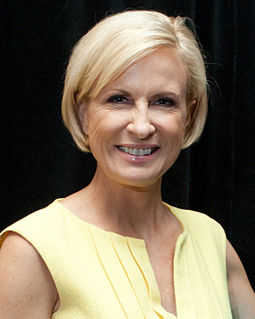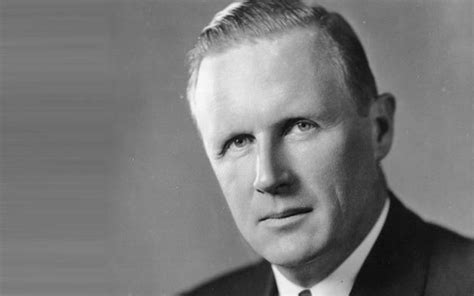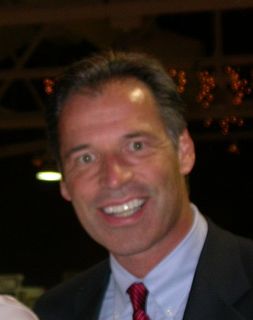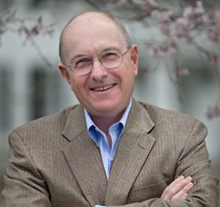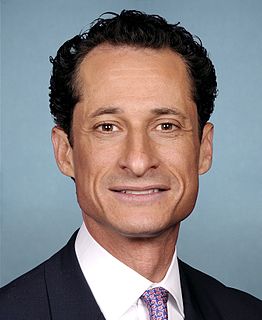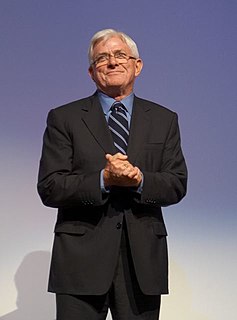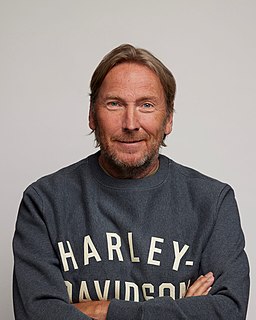Top 828 Profits Quotes & Sayings
Explore popular Profits quotes.
Last updated on April 14, 2025.
The danger of tautological propositions is considerable in discussions of the concept of normal profits. Because supernormal profits seem to invite newcomers to an industry and sub-normal profits seem to drive away those who are in an industry, some writers are inclined to define normal profits as the earnings of the fixed resources in an industry which neither grows nor declines in size or number of firms. It should be clear that such a definition is useless: it muddles together attractiveness and actual afflux, desirbility of entry and ease of entry, zero profits and monopoly rents.
Big Pharma needs sick people to prosper. Patients, not healthy people, are their customers. If everybody was cured of a particular illness or disease, pharmaceutical companies would lose 100% of their profits on the products they sell for that ailment. What all this means is because modern medicine is so heavily intertwined with the financial profits culture, it’s a sickness industry more than it is a health industry.
Growth is the mantra of our society because the economy can't remain healthy without growth.Impregnable monopolies aside (and these are few), profits are both the hallmark of capitalism and its Achilles heel, for no business can permanently maintain its prices much above its costs. There is only one way in which profits can be perpetuated; a business-or an entire economy-must grow.
I think the American people should see that the corporations abandoned them long ago. That people will have to build their own economies and rebuild democracy as a living democracy. The corporations belong to no land, no country, no people. They have no loyalty to anything apart from the base-line - their profits. And the profits today are on an unimaginable scale; it has become illegitimate, criminal profit - profits extracted at the cost of life.
In 2013 Citigroup had profits of $6.4 billion in the United States. They paid no federal income tax and, in fact, received a rebate from the IRS of $260 million. That same year J.P. Morgan had $17.2 billion in profits in the U.S. They also paid no federal income tax. Do you think it's time for tax reform?
But I beg you to observe that there is a wide difference between being captains or governors of work, and taking the profits of it. It does not follow, because you are general of an army, that you are to take all the treasure, or land, it wins; (if it fight for treasure or land); neither, because you are king of a nation, that you are to consume all the profits of the nation's work.
On behalf of the newspaper industry I wish to announce some changes we're making to serve you better. When I say 'serve you better,'' I mean 'increase our profits.' We newspapers are very big on profits these days. We're a business, just like any other business, except that we employ English majors.
Too many people are apt to redeem their profits too quickly. In a huge bull market they wind up with piddling profits, only to watch their former holdings soar. That usually prompts them into making mistakes later when, believing that the market owes them some money, they buy at the wrong time at much higher levels.
The [liberals] consider profits as objectionable. The very existence of profits is in their eyes a proof that wage rates could be raised without harm to anybody. They speak of profit without dealing with loss. Profit and loss are the instruments by means of which the consumers keep a tight rein on all business activities. A profitable enterprise tends to expand; an unprofitable one tends to shrink. The elimination of profit renders production rigid and abolishes the consumer's control.
The status quo is a very powerful opiate and when you have a system that seems to be working and producing profits by the conventional way of accounting for profits. It's very hard to make yourself change. But we all know that change is an inevitable part of business. Once you have ridden a wave just so far, you have to get another wave. We all know that. For us, becoming restorative has been that new wave and we have been riding it for 13 years now. It's been incredibly good for business.
All people, entrepreneurs as well as non-entrepreneurs, look askance upon any profits earned by other people. Envy is a common weakness of men. People are loath to acknowledge the fact that they themselves could have earned profits if they had displayed the same foresight and judgment the successful businessman did.
Businesses just want to increase their profits; it's up to the government to make sure they distribute enough of those profits so workers have the money to buy the goods they produce. It's no mystery - the less poverty, the more commerce. The most important investment we can make is in human resources.
Some people would argue the other side: that the business of business is business, and companies should only be focused on profits. But in today's world, I don't think corporations can only be focused on profits, because they are inextricably linked with the communities that they serve. I do not believe you can be a leader in your industry without being a leader in your community. It's a fundamental shift in how you think about business.
In many ways, large profits are even more insidious than large losses in terms of emotional destabilization. I think it's important not to be emotionally attached to large profits. I've certainly made some of my worst trades after long periods of winning. When you're on a big winning streak, there's a temptation to think that you're doing something special, which will allow you to continue to propel yourself upward. You start to think that you can afford to make shoddy decisions. You can imagine what happens next. As a general rule, losses make you strong and profits make you weak.
Socialized medicine allows a nation to exclude a U.S. product from its market if the U.S. firm does not make generous enough price concessions. Accordingly, what has developed is a system within which U.S. firms make large profits on new drugs in the U.S. market, but very low profits on sales everywhere else.
Firms would be given initial entitlements to gross markup on the basis of past performance, adjusted by changes in labor and capital inputs. This is somewhat similar to the definition of normal profits under some versions of the wartime excess -profits tax. Entitlements would be transferable and a competitive market established.
It is not the fault of the entrepreneurs that the consumers,the people, the common man,prefer liquor to Bibles and detective stories to serious books, and that governments prefer guns to butter. The entrepreneur does not make greater profits in selling bad things than in selling good things. His profits are the greater the better he succeeds in providing the consumers with those things they ask for most intensely.
If the present American laws concerning the taxation of the profits of corporations, the incomes of individuals, and inheritances had been introduced about 60 years ago, all those new products whose consumption has raised the standard of living of the 'common man' would either not be produced at all or only in small quantities for the benefit of a minority. The Ford enterprises would not exist if Henry Ford's profits had been taxed away as soon as they came into being.
To the economically illiterate, if some company makes a million dollars in profit, this means that their products cost a million dollars more than they would have without profits. It never occurs to such people that these products might cost several million dollars more without the incentives to be efficient created by the prospect of profits.
Too many companies these days can't tell the difference between good profits and bad.... By now you're probably wondering how in heaven's name profit, that holy grail of the business enterprise, can ever be bad. Short of outright fraud, isn't one dollar of earnings as good as another? Certainly, accountants can't tell the difference between good and bad profits. They all look the same on an income statement. While bad profits don't show up on the books, they are easy to recognize. They're profits earned at the expense of customer relationships.
Many of the wonderful achievements of the 20th century were the result of the pursuit of profits. Unfortunately, demagoguery has led to profits becoming a dirty word. Nonprofit is seen as more righteous, particularly when people pompously stand before us and declare, 'We're a nonprofit organization.'
Planned Parenthood and Human Rights Campaign they`re not really the establishment. I can`t obviously speak for Senator Bernie Sanders or about Planned Parenthood. But what we do see, and we`ve seen for years in America, is that the establishment, that is, the big banks and the executives and the wealthy do support a lot of non-profits and make the non-profits basically walk to the tune of the establishment.
There is a profiteer when it comes to oil. 36 to 63 cents per gallon is swept off the top. And who profits from that? The government profits from it. And what does the government do with much of that money? It puts it into so-called 'alternative energy,' with so-called phony 'green jobs' that we're yet to see being produced.
Markets are interested in profits and profits only; service, quality, and general affluence are different functions altogether. The universal, democratic prosperity that Americans now look back to with such nostalgia was achieved only by a colossal reigning in of markets, by the gargantuan effort of mass, popular organizations like labor unions and of the people themselves, working through a series of democratically elected governments not daunted by the myths of the market.
The old way of doing 'good business' was based on the principle, 'the ends justifies the means.' In the future, good business will invoke 'the means justifying the ends.' The E P&L can already serve as an important tool to help this shift in commerce from generating profits with collateral damages to profits with collateral benefits.

